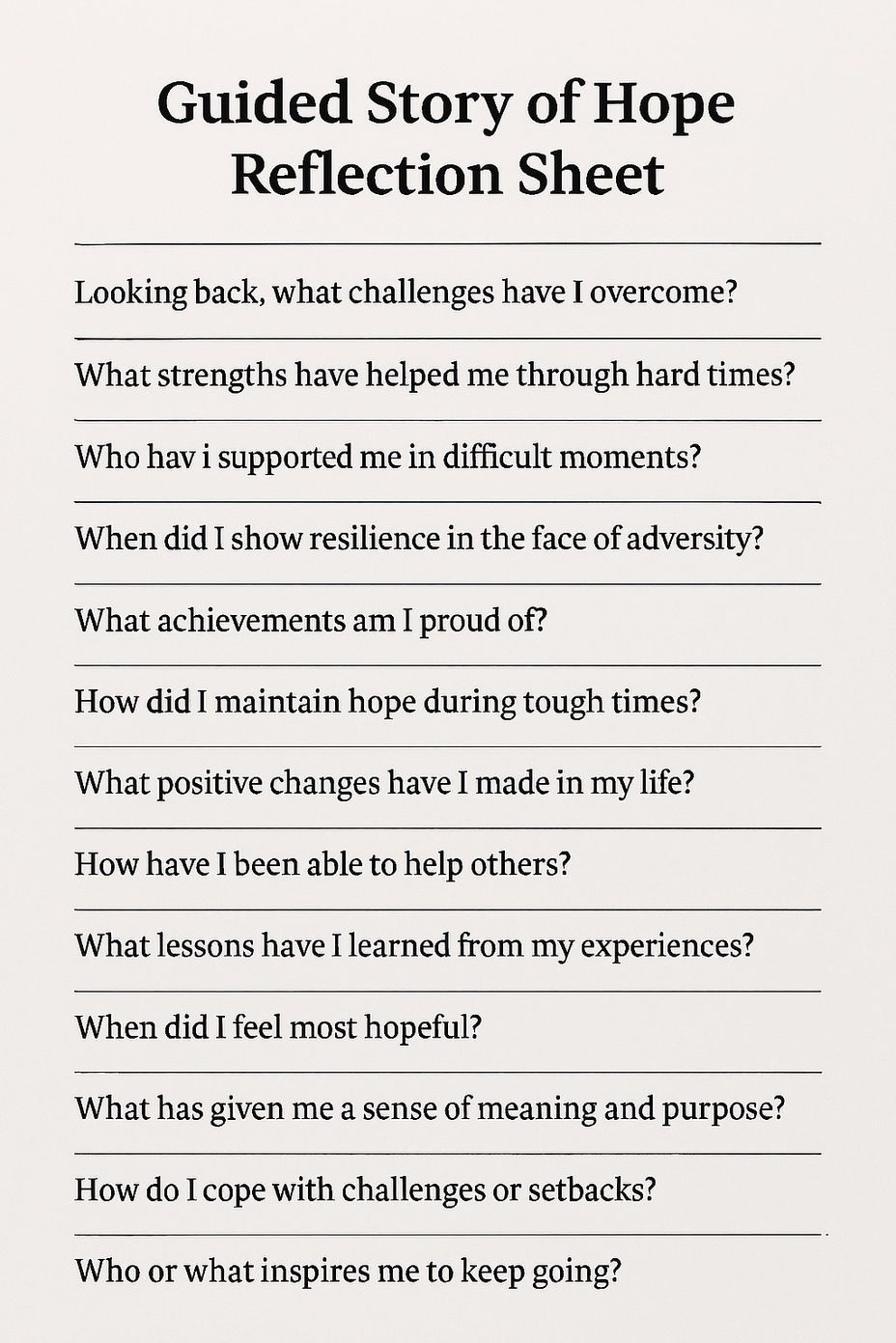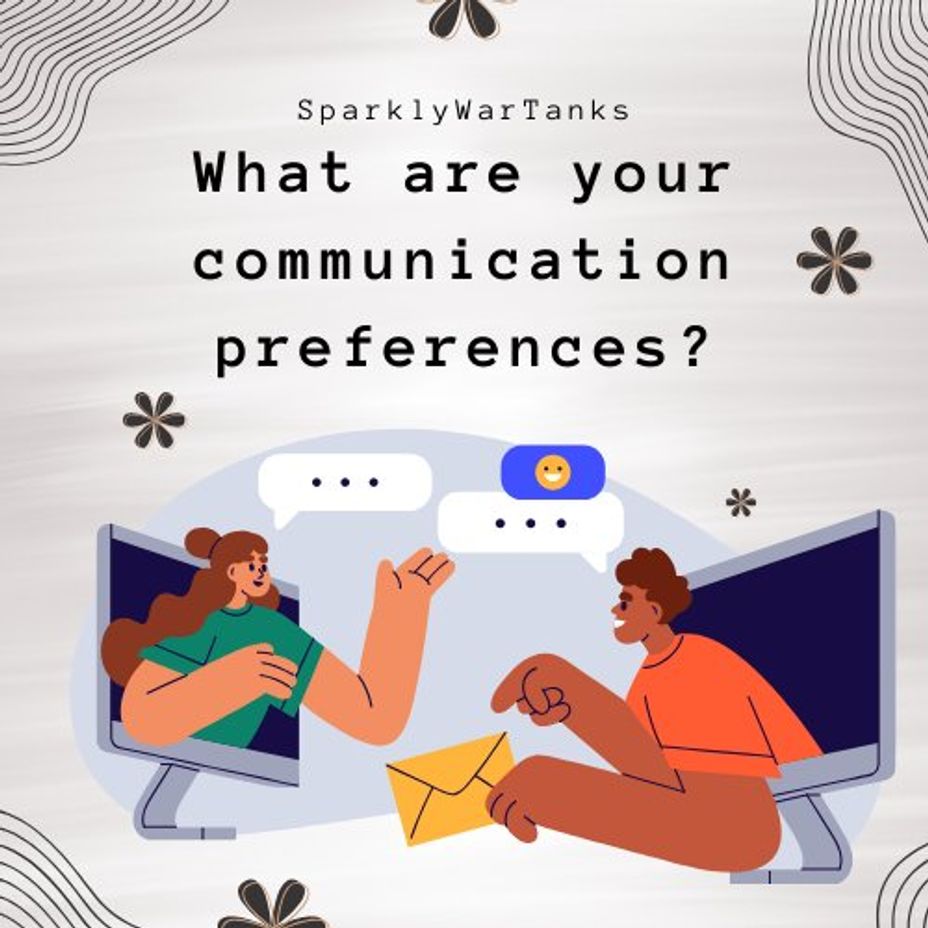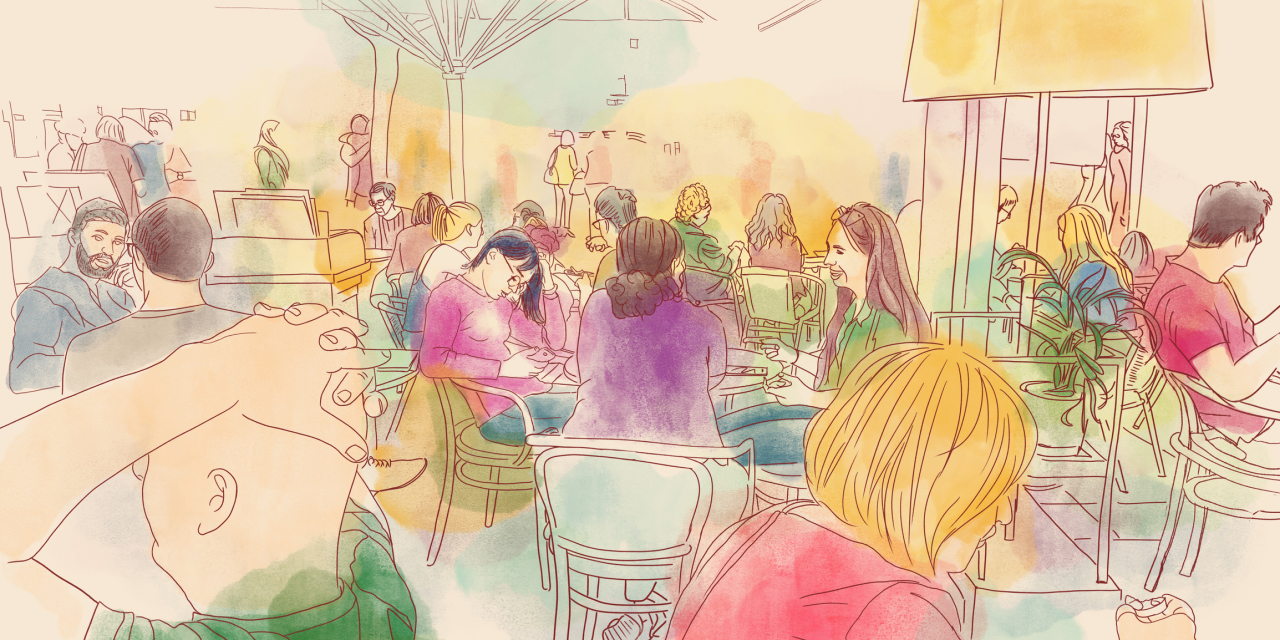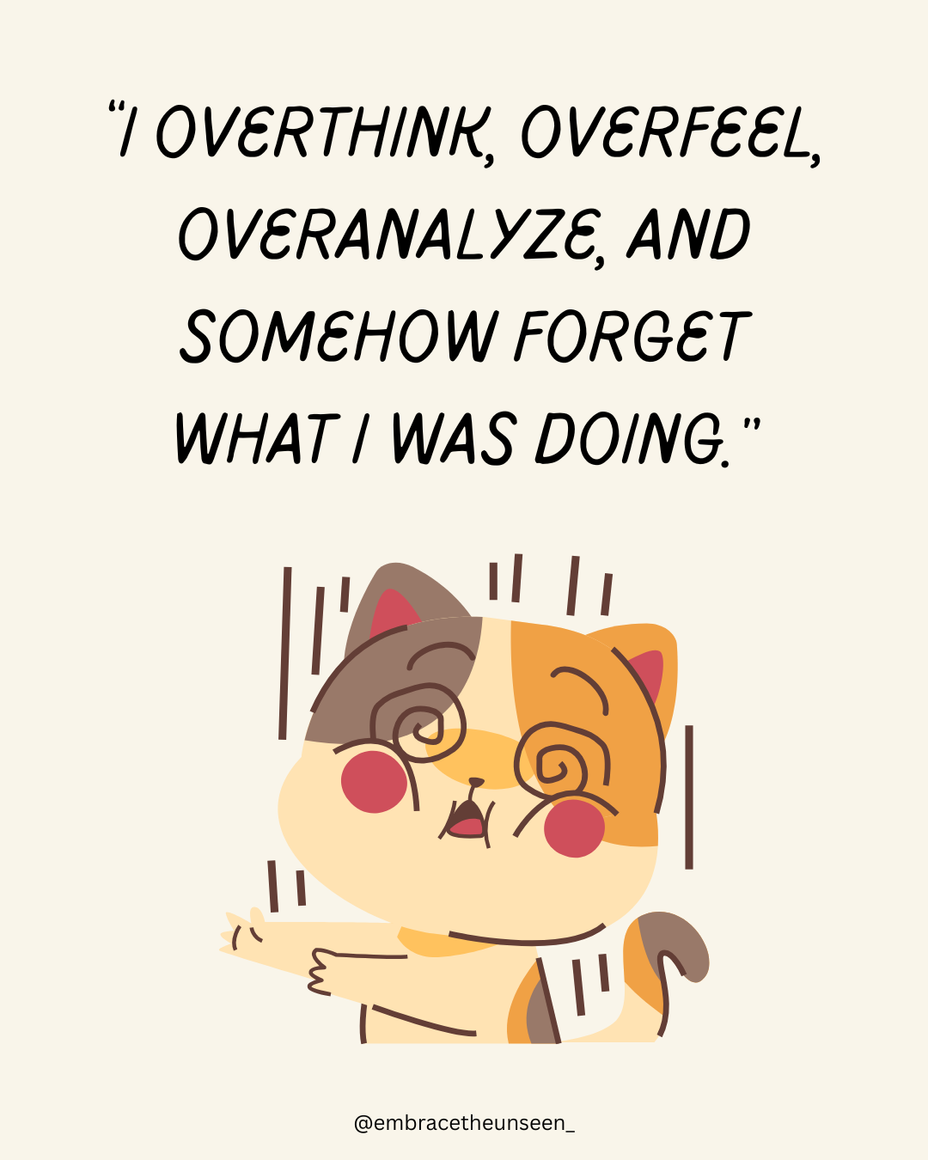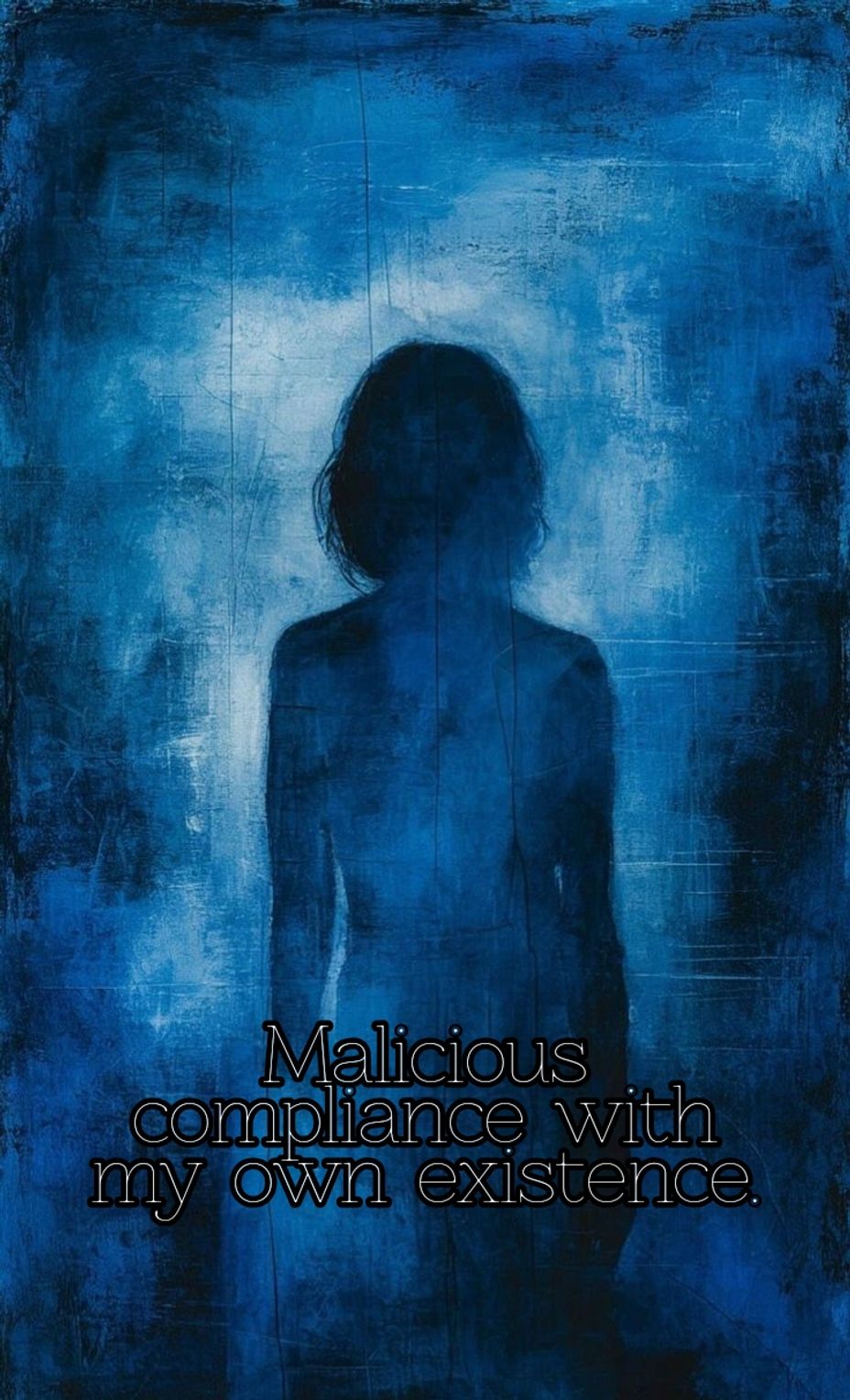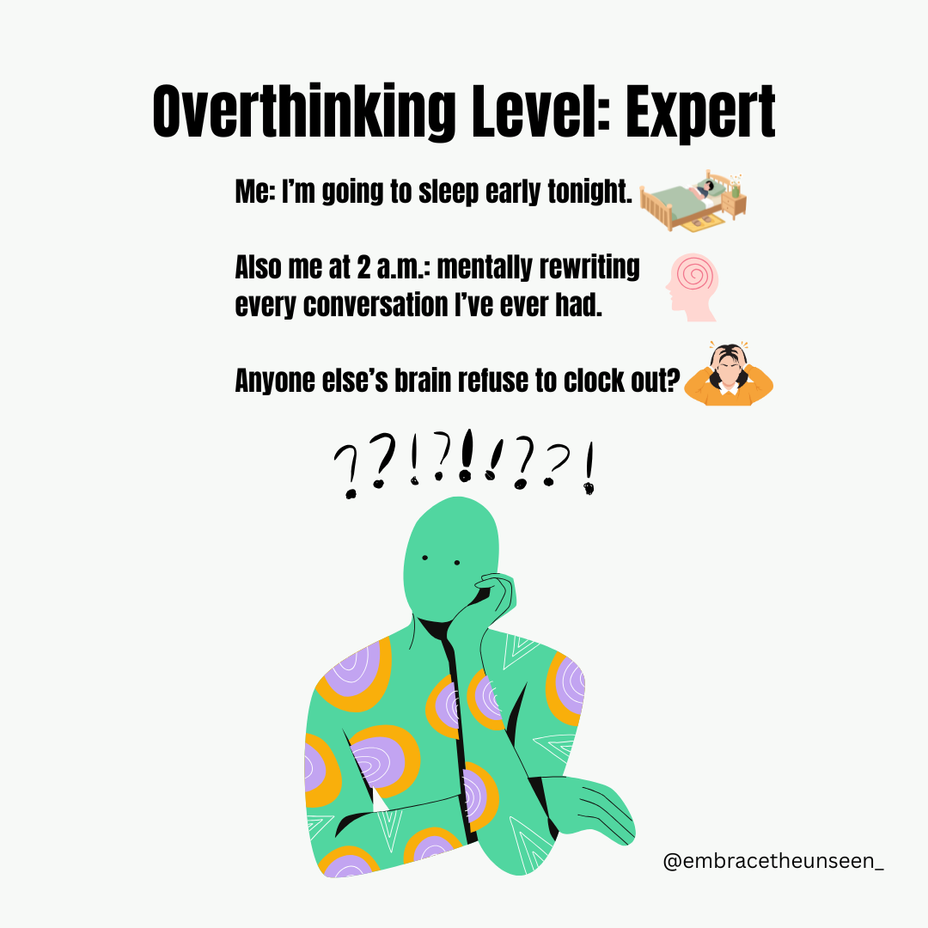Sometimes I don’t notice that I’m overstimulated right away. The signs and signals start out small. A flicker of tension behind my eyes. My shoulders tightening without my realizing. A low buzz of unease that I try to ignore. Then, little by little, everything starts to feel incredibly heavy.
For me, overstimulation lives in my body, not just in my mind. The sensations I feel are indicators that I’ve had too much. My chest will start to tighten. My hands start fidgeting. My thoughts race and loop over details that don’t need attention, making it nearly impossible to focus. It can be subtle at first, but if I don’t take a moment to pause, it escalates.
Sometimes it looks like me rereading the same text message five times and still not processing it. Sometimes it’s me standing in the kitchen, staring at the counter, forgetting what I walked in there to do. Sometimes it’s tears welling up over something small, and I don’t even understand why.
Crowds and noise are the most obvious triggers for me.
The other night, I went out with some friends to go dancing, listening to old hits from our generation. At first, I was doing okay — the crowd, the lights, the music all felt manageable. I was even laughing, singing along, enjoying myself. But as the night progressed, it became too overwhelming. The lights felt sharper. The bass thumped through my chest instead of feeling fun. The chatter around me blurred into a constant hum that I couldn’t filter out.
I had to step outside for a moment to regroup. People just kept pouring in, and my personal space started to feel impossibly small. I remember standing outside, taking a deep breath, trying to calm my body down before my mind could even explain what was happening. We thankfully left a little early. It was honestly all my mind and body could handle in that moment.
It’s not always dancing. Sometimes it’s the grocery store on a Sunday afternoon. There are too many carts. Too many decisions to be made. Too many bright florescent lights. I’ll find myself rushing through aisles, forgetting half of what I needed, just wanting to get out.
Even things that seem small — a strong perfume in an elevator, birds chirping nonstop outside my window when I’m already tired, or too many notifications all pinging at once — can make me feel uneasy. It’s like my nervous system has a threshold, and once it’s crossed, everything feels louder.
When I’m overstimulated, I can’t find the words I usually know. I struggle to prioritize, and small decisions can really feel monumental. What should we eat? What time should we leave? Do I respond to that message now or later? Simple tasks feel exhausting. All I want to do is escape, hide, and shrink into a space where I can breathe.
The Signs I’ve Learned to Watch For
Over the years, I’ve learned to recognize the early warning signs:
I feel restless but trapped. My body wants movement, but the environment feels inescapable.
I lose patience quickly. Even kind words or small inconveniences feel amplified.
I withdraw socially. I get quieter. I start counting down how long until I can leave.
I overthink everything — decisions, interactions, even what I should eat.
I crave sensory resets. Music, deep breaths, walking outside — anything to ground me.
Sometimes the biggest sign is simply this: I don’t feel like myself anymore.
Ways I Manage Being Overstimulated
I’ve learned that I can’t push through it the way I used to. That only makes it worse.
Now, I try to:
• Step outside. A breath of fresh air. The feel of sun or breeze on my skin.
• Sit in my car for a few quiet minutes before driving home.
• Use white noise or calming music to soften everything else.
• Dim the lights when I get home and let the house feel gentle.
• Take a shower or bath to physically reset my body.
• Disconnect from screens because notifications and scrolling add more mental clutter than I realize.
Sometimes it’s not about “fixing” the overstimulation. It’s about allowing myself to feel it, recognize it, and respond with care instead of shame.
My Reminder
When I notice the signs — my chest tightening, my mind racing, my patience running thin — I try and pause. I remind myself that I’m allowed to step away. I’m allowed to need quiet. I’m allowed to take up space and protect my energy.
I’m learning that overstimulation isn’t a flaw. It’s information. And every time I listen to it instead of fighting it, I feel a little more grounded. A little more whole. A little more like myself.
How does your body tell you it’s had enough — and do you listen?
“My body reacts before my mind understands.”
#ADHD #Autism #Neurodiversity #MentalHealth #AutismSpectrumDisorder
